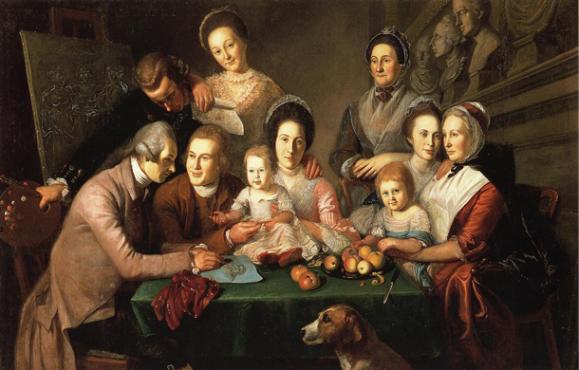Our own David Opperman has posted an excellent series of responses to Bojidar Marinov’s Marxist attack on race, nation, tribe, community, and extended family. Marinov’s claim that the only meaningful family unit for a Christian is the nuclear family of father, mother, and under-aged children stands against all of Scripture, history, and everyday experience. Coming from this anti-biblical point of view, Marinov recently picked a fight with blogger Vaughn Ohlman about this issue, prompting him to write a masterful response to Marinov’s foolishness. You can find Ohlman’s entire blog post here. Ohlman takes Marinov’s argument point by point, showing that the examples he uses not only fail to prove his point about the nuclear family, but actually completely disprove it. For example, Marinov attempts to use Abraham as a point for nuclear families:
Abraham was commanded to leave his family.
To which Ohlman responds:
True. And a point was made of it as if it was an unusual thing. But for the supporters of the nuclear family, this doesn’t help, as he left… with his nephew. Not exactly his ‘nuclear family’. And, one assumes, his nephew’s wife (altho the date of their nuptials is not, as far as I can tell, listed in Scripture).
Towards the end, Ohlman delves into the Hebrew to show that the Bible doesn’t even have a word resembling “nuclear family.” His conclusion in response to Marinov is that the biblical family is in fact always the extended family, with which we here at F&H heartily agree.
Scripture clearly uses the extended family in a variety of ways: as a section of society, as a means and object of blessings, and as a jurisdictional unit. It does not even make the distinction of ‘nuclear’ vs ‘extended’. There doesn’t even seem to be a word that one can use, in Hebrew, whose meaning is limited to ‘nuclear’. There seem to be literally dozens of words that one can use to refer to the ‘extended’ family of various sizes and qualifications, [tribe, family, house, household, seed, sons of… etc.] but none that are used to mean just ‘man, woman, and underage children’.
Amen.
Edit: Mr. Ohlman has clarified in the comments below that he did not mean collectivism in the libertarian sense that all groups are bad, but in the theonomic sense of groups overreaching their biblical jurisdiction; and has edited his article to eliminate any confusion on that point.
“Collectivism” is generally used, in my experience, in an unbiblical libertarian context whereby all groups and group identities are painted with a fundamentally negative connotation. Just like “cisgender,” “white privilege,” or “homophobia,” whenever you hear “collectivism” being used seriously, then usually whatever is about to be said is wrong.
Note how Marinov uses the word in his attack on any group broader than the nuclear family:
Clannish collectivism separates us from the Biblical culture just as much as churchist or statist collectivism does.
Ohlman’s response in defining the word, affirming the biblical concept of the group and individual in balance, and articulating all three jurisdictions within their biblical boundaries is spot on. I highly recommend you read it in full (link in first paragraph).
| Tweet |
|
|
|





